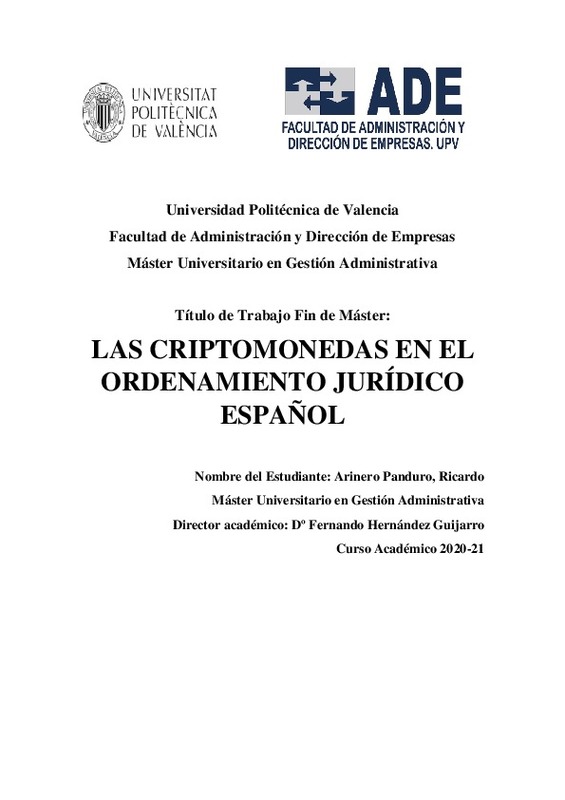JavaScript is disabled for your browser. Some features of this site may not work without it.
Buscar en RiuNet
Listar
Mi cuenta
Estadísticas
Ayuda RiuNet
Admin. UPV
Las criptomonedas en el ordenamiento jurídico español
Mostrar el registro completo del ítem
Arinero Panduro, R. (2021). Las criptomonedas en el ordenamiento jurídico español. Universitat Politècnica de València. http://hdl.handle.net/10251/171179
Por favor, use este identificador para citar o enlazar este ítem: http://hdl.handle.net/10251/171179
Ficheros en el ítem
Metadatos del ítem
| Título: | Las criptomonedas en el ordenamiento jurídico español | |||
| Autor: | Arinero Panduro, Ricardo | |||
| Director(es): | ||||
| Fecha acto/lectura: |
|
|||
| Resumen: |
[ES] Las criptomonedas es dinero virtual que sirve para realizar operaciones sin que las
personas puedan estar pagando comisiones a una autoridad o órgano público que lo
imponga, aun así, el concepto de criptomonedas ...[+]
[EN] Cryptocurrencies are virtual money used to carry out operations without people paying
commissions to an authority or public body that imposes it, even so, the concept of
cryptocurrencies is not at all clear since ...[+]
|
|||
| Palabras clave: |
|
|||
| Derechos de uso: | Reserva de todos los derechos | |||
| Editorial: |
|
|||
| Titulación: |
|
|||
| Tipo: |
|
recommendations
Este ítem aparece en la(s) siguiente(s) colección(ones)
-
ADE - Trabajos académicos [3699]
Facultad de Administración y Dirección de Empresas







